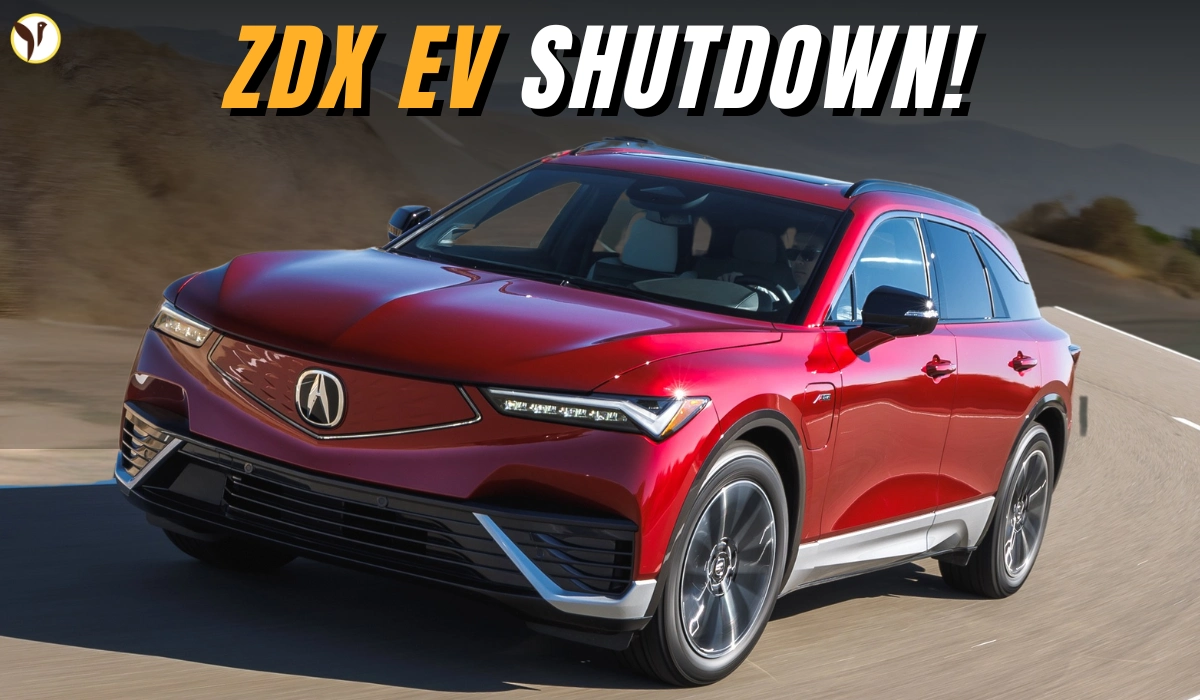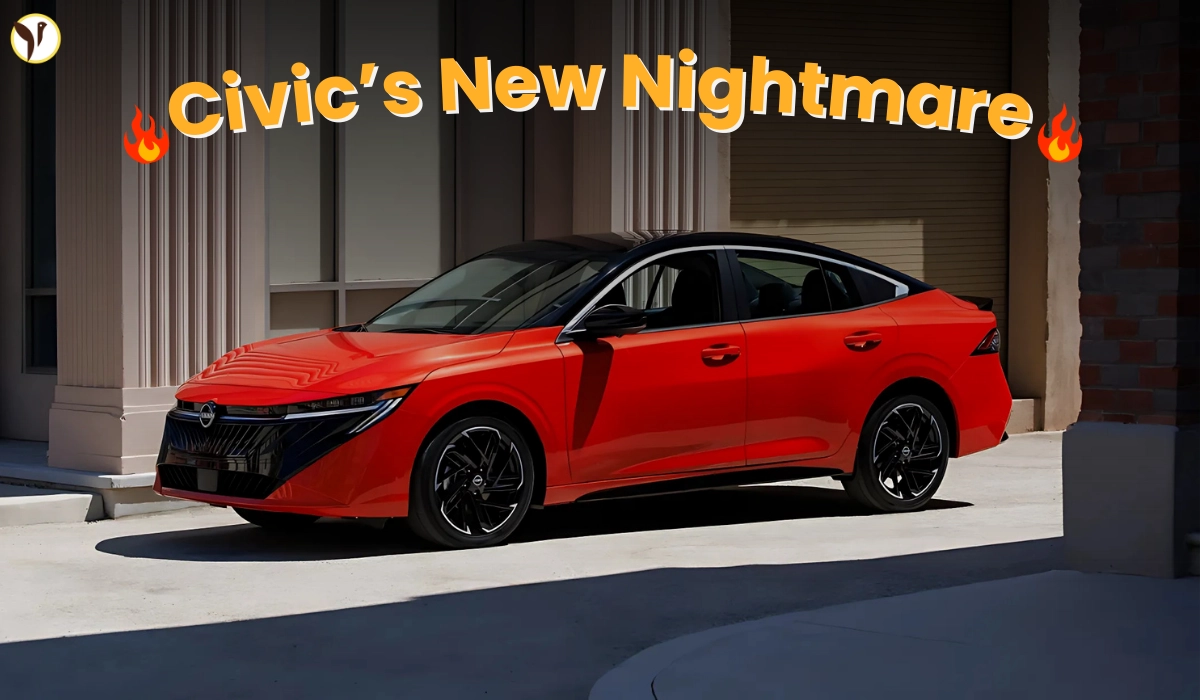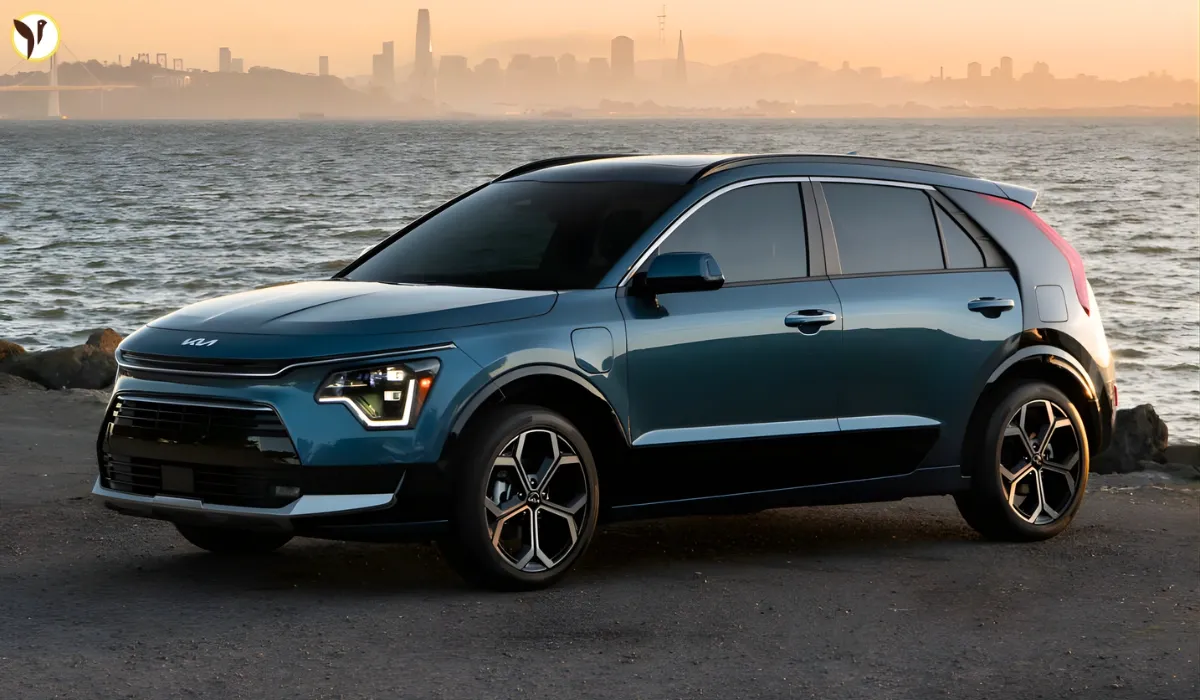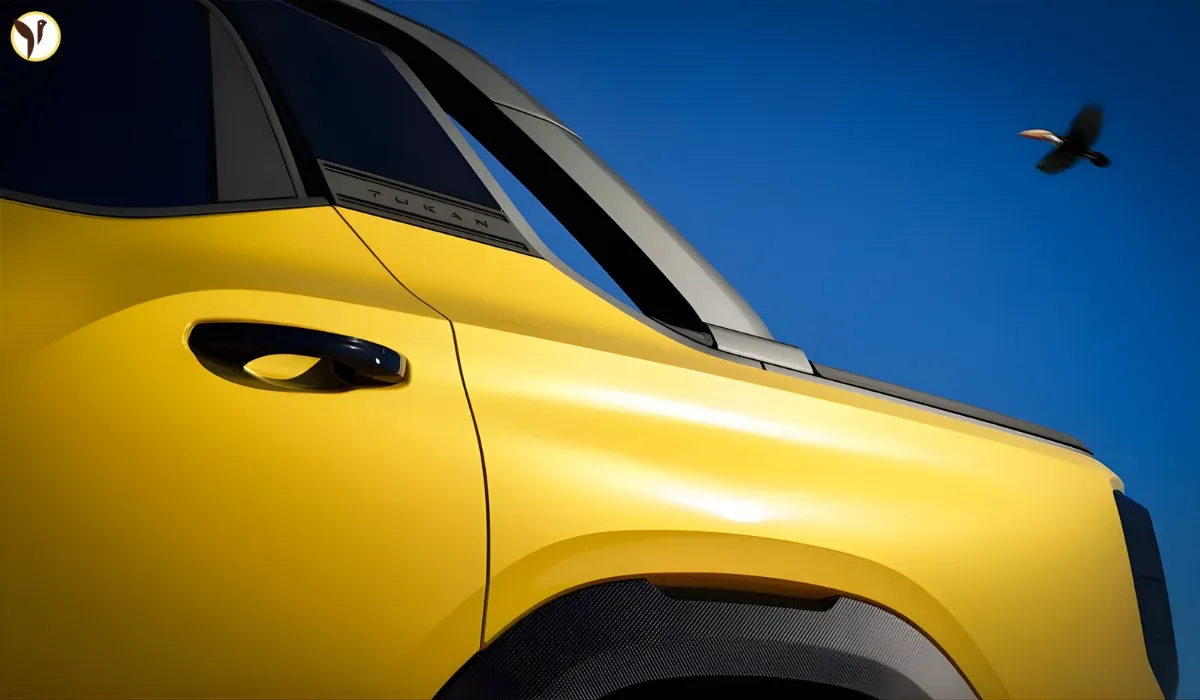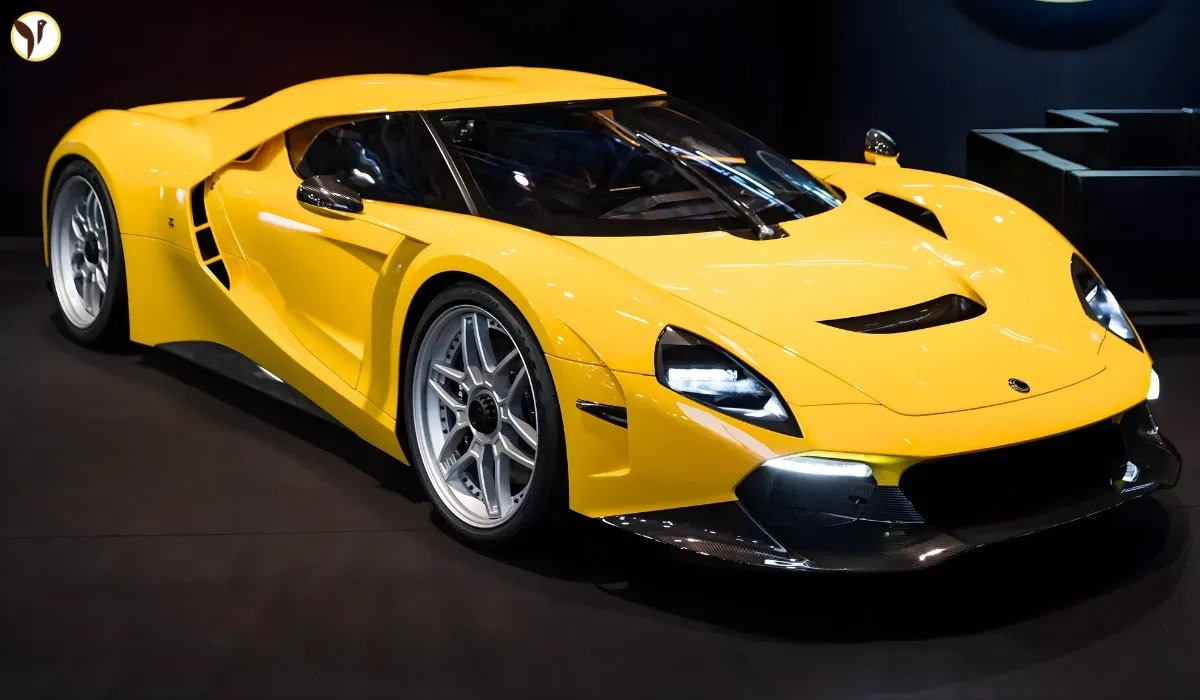Acura has announced that it has stopped producing its first all-electric SUV, the ZDX, in the United States. This announcement is less than two years after the ZDX model was launched and surprised many fans who thought that this was an important step for the brand to move towards an electric future. Although the ZDX received positive reviews and had an early passionate fan base, the brand decided to remove it after changing US EV policies, an expiration of federal tax credits, and a changing market landscape as a whole. It also reflects just how quickly the EV industry can change, even for established automobile brands.
Why Acura Decided to Stop Making the ZDX EV
The discontinuation of the ZDX was not due to poor levels of quality or insufficient buyer interest—it was the product of a rapidly shifting marketplace. Acura insiders cite new government policies, new guidelines for production, and the imminent expiration of the $7,500 federal EV tax credit as contributing factors. These factors make it exorbitantly hard to have carmakers hold price and profit levels. Acura also paid a lot of additional costs and gave up control of production by using General Motors Ultium platform for the ZDX. By pulling out of it now, Acura can determine its own investments in developing EV's on its own technology, which will contribute to the level of estimation that IOC can maintain in a volatile market.
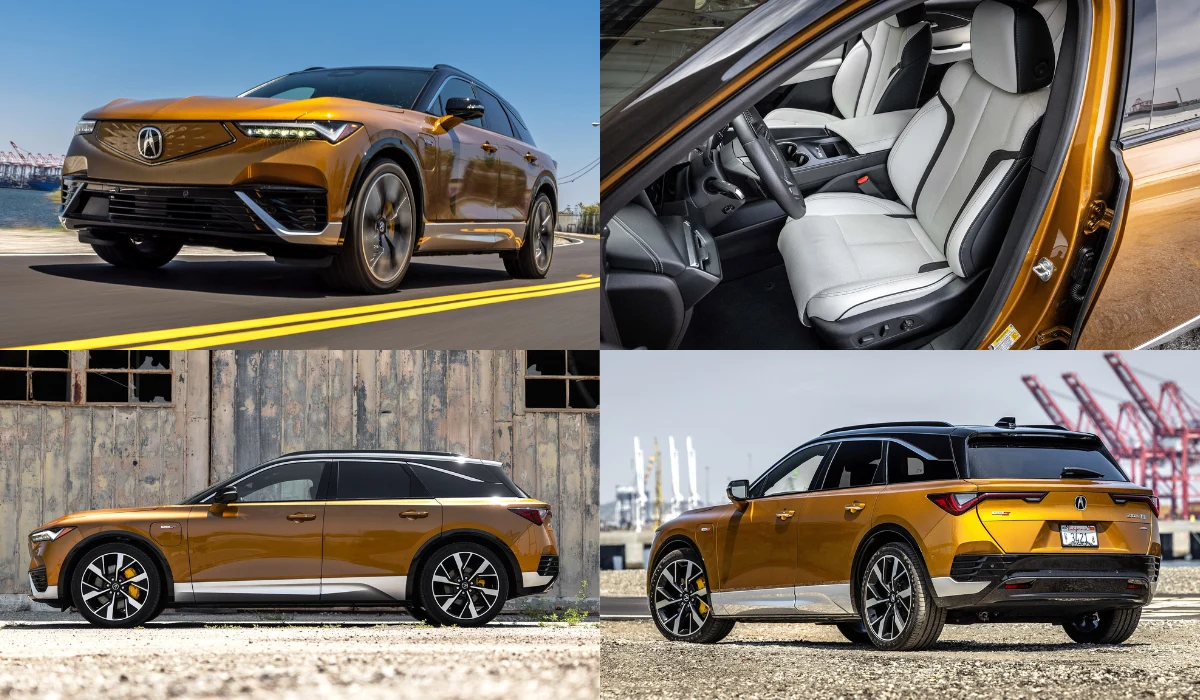
How Federal Tax Credits Helped Acura ZDX Sales
The ZDX experienced respectable sales numbers for a first model electric vehicle. Acura dealers acknowledged the good interest in the model, and thousands of new ZDXs were purchased during the first year. However, many of those sales were made by consumers who were able to receive large incentives and the federal tax credit, which discounted the price of the SUV by thousands of dollars. Some Acura dealerships pushed incentives of around $30,000 off the purchase price of specific trim levels to help sell the vehicles before the incentives ended. It would have been a harder sell without the incentives because of the high prices and competition in that segment of the car market.
Best Features of the Acura ZDX Electric SUV
The ZDX was more than just another electric SUV: It melded stylish design, advanced technology, and performance that addressed the desires of luxury buyers and EV enthusiasts alike. Built on GM's Ultium architecture, it had an estimated driving range of up to 325 miles, all-wheel drive (with dual motors), and fast charging (for longer drives). Inside, the ZDX offered an upscale cabin equipped with dual-screen displays, Google Built-In infotainment, and advanced driver-assistance systems for extra safety and comfort. The even higher-performing Type S had 500 horsepower with sportier suspensions and sharper handling, and gave Acura fans a taste of the excitement EVs can bring.
Key Highlights of the ZDX
- Confident handling with dual-motor all-wheel drive
- Estimated range of up to 325 miles
- Google Built-In infotainment system with voice controls
- Fast DC charging for convenient top-ups
- Next level of safety protection through AcuraWatch suite
- Available Type S model with 500 hp and sport-tuned suspension

How the $7,500 EV Tax Credit Affected ZDX Sales
A significant contributor to the ZDX's quick acceptance had to do with the $7,500 federal EV tax credit, which helped to lessen the effect of the BMW's luxury pricing to those buyers shopping for a shift to an electric vehicle. However, the federal tax credit is due to expire in the late September 2025 timeframe and price the ZDX out of reach for thousands of dollars overnight. The price increase could have certainly influenced the buying decision for many buyers in the ZDX target market. Acura's decision to curtail production indicates the degree some vehicles are dependent upon tax credits to sell, and that manufacturers may need to adjust quickly to maximize sales when the tax credits are not available.
What’s Next for Acura EVs
The discontinuation of the ZDX will not hinder Acura from its initiative in electric vehicles. Acura has its next electric vehicle, badged copiously as an “RSX” coming in 2026. Unlike the ZDX, which uses GM's Ultium platform, the RSX will come from Honda won't make a big deal about the Ultium as a GM platform. Honda's e: architecture will give Acura more control over design, performance and cost. First reports of the RSX suggest increased range, faster charging and a stronger Acura identity, addressing complaints brought on by the ZDX. And don't worry ZDX owners: Acura will continue to support those who have already purchased a ZDX as well, providing parts, repairs and warranty options through dealership networks.
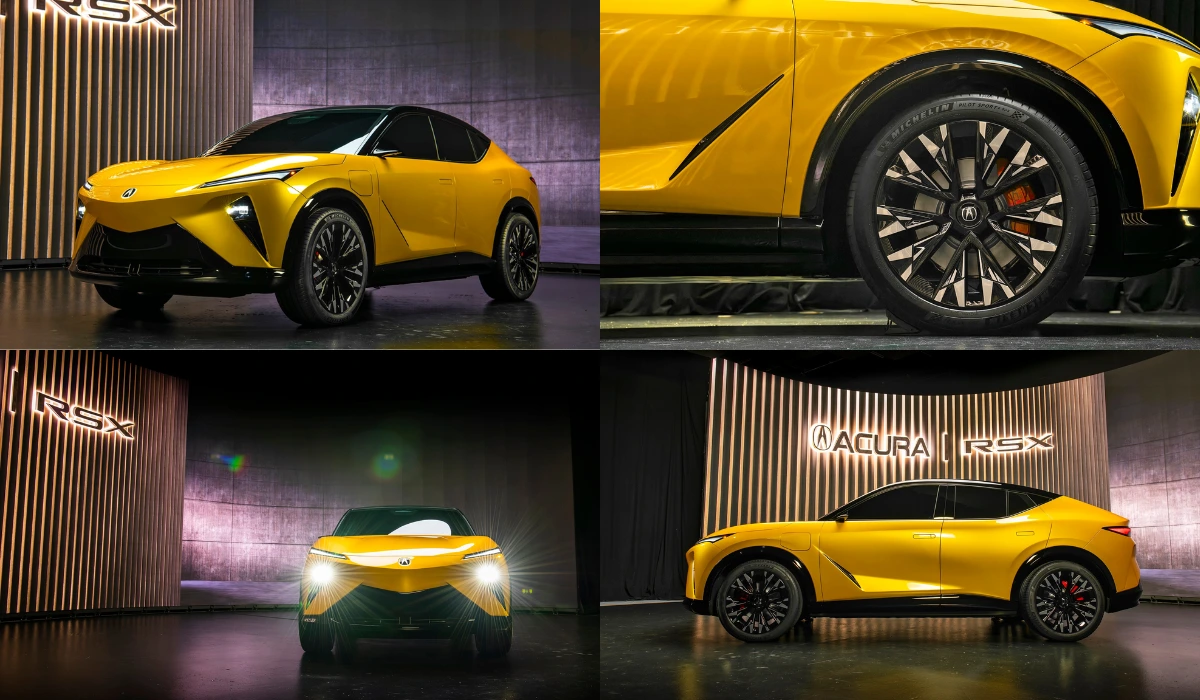
What ZDX Owners Should Know Now
If you're currently the owner of a ZDX or contemplating purchasing one of the last remaining units for sale, support won't be an issue. Acura has stated that all warranties will still be honored and service, maintenance, and replacement parts will still be available. In addition, buyers looking for a deal may find some significant discounts as dealers will be trying to order out remaining inventory while they can for the benefit of the federal tax credit. Shopping for a luxury EV that has decent range and performance, the ZDX will still be an impressive vehicle if you can find it on a dealer's lot.
Acura ZDX EV Specifications
|
|
|
|
|
|
|
|
|
|
|
|
|
|
|
|
|
|
|
|
|
|
|
|
|
|
|
Conclusion
The Acura ZDX EV may have been short-lived, but it made a significant mark on the future of electric SUVs. It demonstrated that Acura could deliver a package with luxury, range, and performance, despite the market forces that disrupted its journey. As government policies changed, important tax incentives ended, and competition increased, the ZDX was dealt a blow that even the best product could not recover from. For Acura, this is not the end, but a re-setting. The new RSX EV will carry on the learnings from the ZDX and shows that Acura's electric future is just beginning.
ALSO READ: 2026 Nissan Sentra Redesign Will Make Civic Drivers Jealous
Source(Image / Thumbnail): www.edmunds.com
